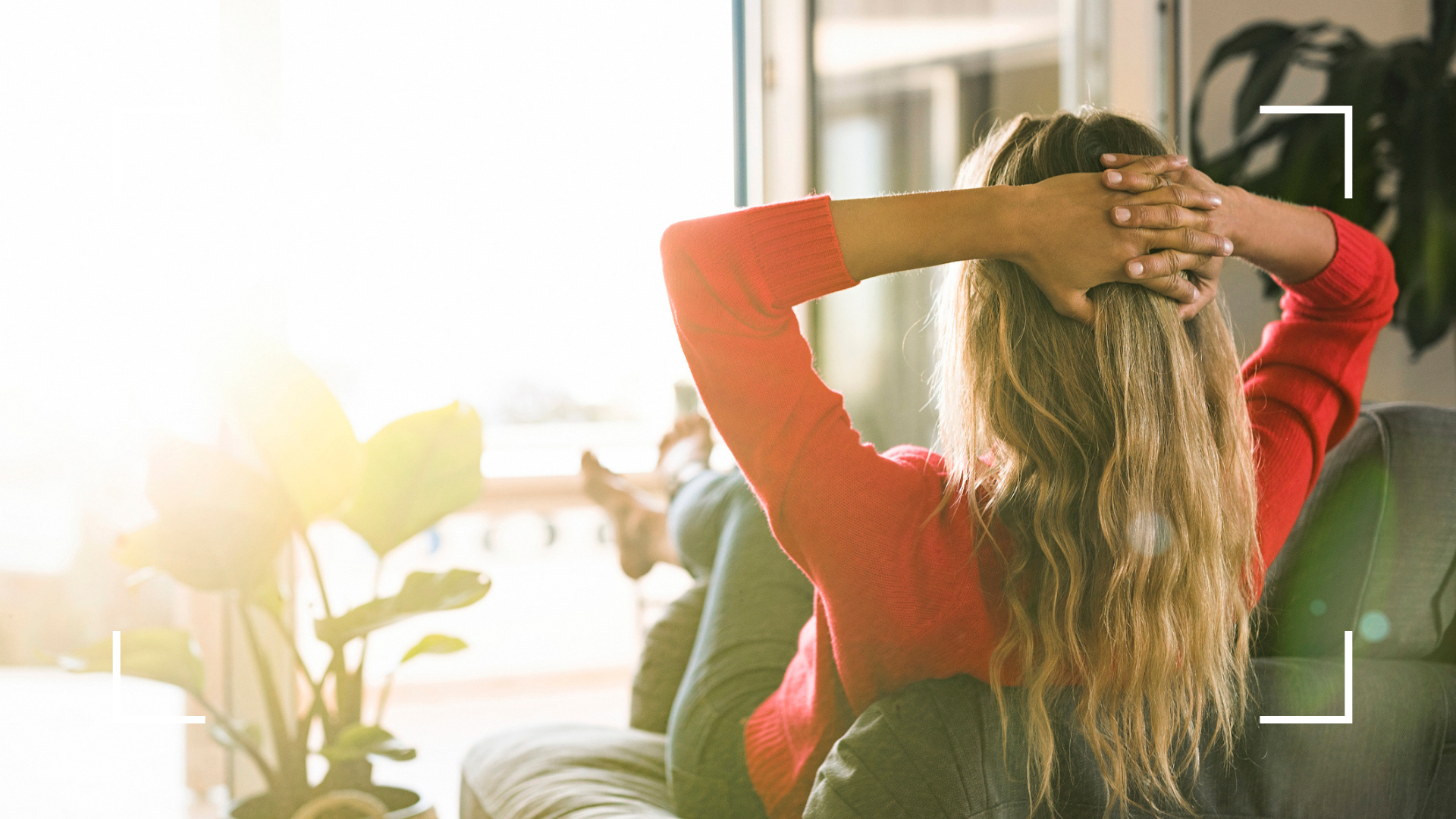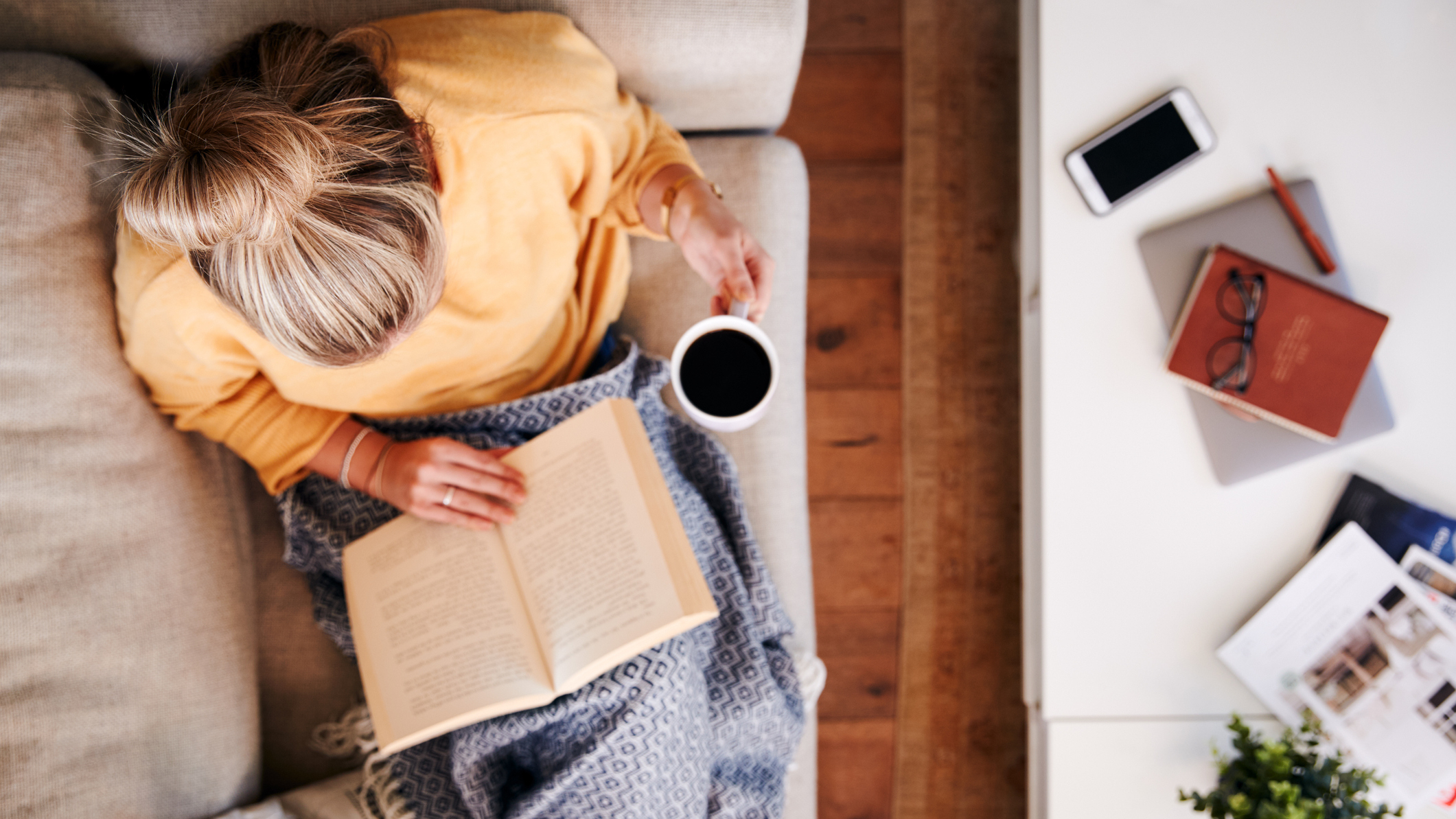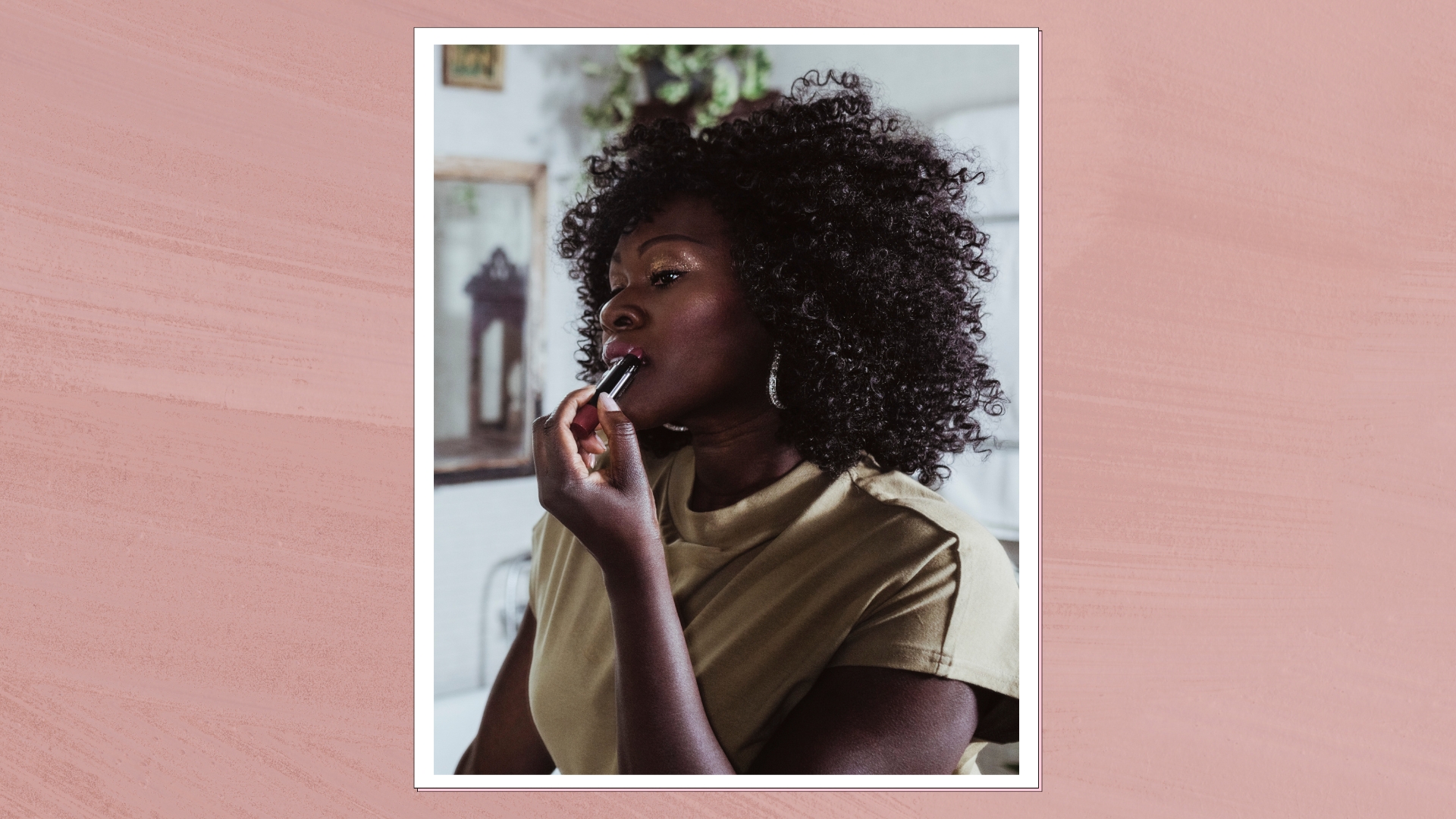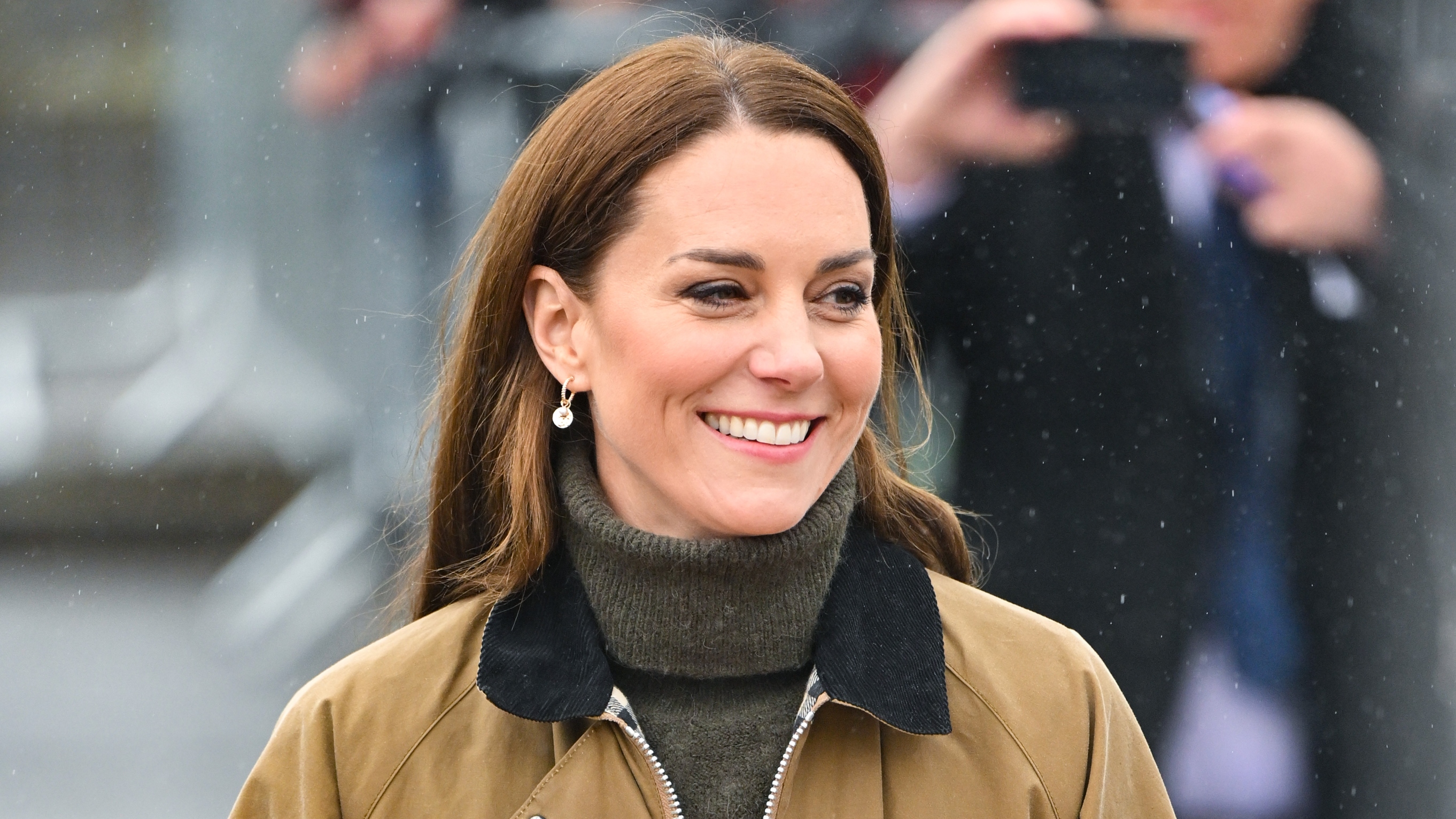New year anxiety may strike—these are the best ways to look after your mental health this January
If you're suffering from new year anxiety, here's how to begin 2022 right by prioritizing your wellbeing, according to therapists


While some may embrace January as an opportunity for a fresh start, many others find themselves suffering from a bout of new year anxiety. And, the beginning of 2022 may feel even bleaker than usual—thanks to the stuffing unexpectedly being pulled out of Christmas fun and the continued Omicron-fuelled uncertainty surrounding the pandemic. But fear not, we're here to help.
First things first, you should know that you're certainly not alone. "Anxiety is a normal part of life for normal people," says Terence Watts, psychotherapist and author of Banish Your Anxiety. "It doesn’t mean you’re mentally ill, deficient, inferior, weird, or somehow substandard." Indeed, in the UK around 8.4 million people suffer from the condition, while it affects an estimated 19.1% of the population in the US.
What's more, women are roughly twice as likely to be diagnosed. With anxiety symptoms so prevalent, we asked the experts for their wisdom on how to relax your mind and protect yourself from triggers so that you stay positive over the coming weeks and beyond.
Why do we feel more anxious at this time of year?

"January can cause anxiety for people, even at the best of times," says Dr Marianne Trent, clinical psychologist and the founder of Good Thinking Psychological Services. "It is a period of natural reflection, which can lead people to wonder whether they’re enough for themselves and others." She adds that the weather doesn't help, with short daylight and cold temperatures making it harder to do activities that naturally boost our mood—like getting outside for exercise and spending time with loved ones. This can, of course, cause some to experience seasonal affective disorder symptoms.
There are a few common triggers for anxiety at this time of year that tend to happen on an annual basis. "Finances are one," says Zoe Clews, PTSD and trauma mental health specialist and founder of Zoe Clews & Associates. "December is a notoriously expensive month—with presents to buy, and pricey fuel required to drive to relatives—and you may have spent more than you budgeted for." Similarly, there's the usual post-festive comedown when all the glittery distractions have gone. "In January life suddenly feels 'serious' again," she continues. "On top of this, some may feel the pressure to become a brand, new shiny, sparkly, flawless reinvented person." It's no wonder you often feel tired in winter.
But it's understandable if you're struggling this year in particular. "The pandemic has felt almost war-like, and we've had to build our skills tolerating distress and the unexpected," explains Dr Trent. "There is set to be continued uncertainty in 2022." On top of this, Rochelle Knowles, a health and life coach who is also the founder of Mindful Eyes, notes that thanks to the continued "threat" we've felt since early 2020, it's caused us to pick up less healthy habits as a coping mechanism for spiraling emotions. "It has resulted in people finding quick-fix comforts—like eating poorly, bingeing on TV, and isolating themselves," she explains. "Which has led to more anxiety."
7 expert tips for managing New Year anxiety

1. Slow down racing thoughts
In the middle of a wave of anxiety, breathing techniques for anxiety may help. "There is a plethora of evidence showing how working with the breath directly impacts the nervous system and can calm you down," says psychotherapist Jenny Di Fabio. "Try breathing in and out through the nose to a count of four—then increase to breathing out for a count of four, holding the breath out for a count of two, and then breathing in for four, and holding the breath in for two. So a 4:2 ratio." She suggests doing several rounds of this.
Sign up for the woman&home newsletter
Sign up to our free daily email for the latest royal and entertainment news, interesting opinion, expert advice on styling and beauty trends, and no-nonsense guides to the health and wellness questions you want answered.
Watts adds that, while counting can be helpful, for some people it may be counter-intuitive. "Sit still and breathe steadily—don’t worry about how many seconds in or out, since this can actually sometimes contribute to the problem," he suggests. "Just breathe slowly and steadily, being sure to exhale all the way out each time." Find what works for you.
2. Relax your body
There's also another handy technique you can try for when anxiety strikes—and it calms your body too. "Concentrate on making your face as expressionless as possible," explains Watts. "Make a ‘poker face’, by relaxing your eyes, nose, mouth and tongue—as though you don’t want anybody to try to read your thoughts." He explains that the subconscious understands that if you’re not reacting with your face, then there’s no danger present, noting: "The purpose of anxiety is to spur you to action. When there’s no threat, there’s no need for action, therefore no need for anxiety."
Another well-tested way to help your body relax is nature. "Get outside," urges Di Fabio. "Whatever the weather, wrapping up and walking outside is a great way of clearing the mind. It will also take you away from negative thought patterns by getting you to focus on what is around you." What's more, being active releases the mood-boosting chemicals serotonin and endorphins—perhaps you could try Nordic walking or go for a jog in your best running gear.
3. Make good habits
Once you've brought your thoughts under control, Knowles suggests putting plans in place to help you stay positive. "Get into good habits," she explains. "Particularly ones that induce feelings of calmness. This could include mindset work—like saying affirmations or listening to an inspiring podcast—as well as movement or meditation." If you're unsure where to get started, try one of these best meditation apps.
It can also be helpful to create a structure for yourself for the year ahead. "It's the unknown which creates feelings of fear and worry," adds Knowles. "I suggest writing out your month-by-month intentions for 2022 at the start of the year, giving you something to work towards." For example, she says, January could be about building up a consistent gym routine, while February may be focused on posting daily on social media to promote your side hustle, and March could be starting to meal prep weekly.
4. Identify your triggers
If you still find your mind spiraling from time to time, take steps to work out what keeps tipping you into negative thought patterns. "Be aware of your triggers," says Clews. "Is it the news? A certain friend's comments? Social media? When we are triggered it sends us into a 'fight or flight' state." This can cause us to feel like we must "do" something, such as panic buy or send an angry text.
"But what we actually need to do is allow ourselves to return to a place of balance," explains Clews. This could be self-soothing activities or self-talk. The best thing is to stop the problem in the first place, she adds, explaining, "Where you can reduce or avoid triggers do, where you can't—such as certain work situations or world events—make sure, on those occasions, you treat yourself with kindness."
5. Get to the root
Similarly, you could try and understand the underlying cause. "People are often advised that distraction is the key to combatting anxiety," explains Dr Trent. "However, what we know is that the main problem with distraction is that once the activity is over, the force of the anxiety hits us full in the face again."
Dr Trent suggests working with a clinical psychologist to find the root of the issue. "They can help you understand what causes you to feel the anxiety in the first place and help you learn skills in stabilization," she explains. "People often don’t recognize that their anxiety can actually have trauma as an underlying cause. The key to quashing it is to be able to recognize compassionately what causes it and then effectively soothe your distress."
6. Look after yourself
It's also vital to go easy on yourself if things feel a bit rocky. "One of the fastest ways to make ourselves feel anxious is to put ourselves under pressure," says Clews. "Of course, we want to feel motivated to create positive change—but the best way to do this is by easing ourselves into it."
This is where self-care comes in. "The better you treat yourself, the better you'll feel," points out Clews. "Ask yourself what it is you need when you are feeling anxious—is it to talk to someone? Is it more sleep? Is it nervous system down-regulating activities such as long walks in nature or yin yoga? Or is it nervous system up-regulating activities such as dancing or belly laughter? " Discover what feels right, and if it's that you need to get your eight hours then take a look at our guide on the best sleep aids.
7. Open up to others
"Talk about your anxiety," recommends Clews. "Find a safe person or group of people that you can share your innermost feelings and concerns with—this could be a friend, a family member, a therapist or coach, or a safe online group. Whoever it is, it's vital you feel emotionally 'held' and not judged."
Seeking support from a professional can also be a good idea if you really aren't sure where your anxiety stems from. "If you have a symptom you don’t understand, it’s always best to err on the side of caution, rather than assume that it’s ‘just’ anxiety," warns Watts. "It’s easy to dismiss it as a mild symptom, but there’s no fool-proof way of finding out other than by medical investigation."
The key thing is to remember that you don't need to always pride yourself on being super independent and self-sufficient. "It could be working against yourself," adds Clews. "Make use of the community you have around you and don't be embarrassed or ashamed to ask for help when you need it—it is normal."
w&h thanks Terence Watts (psychotherapist and author of Banish Your Anxiety, Dr Marianne Trent, clinical psychologist and founder of Good Thinking Psychological Services, Zoe Clews (PTSD and trauma mental health specialist, and founder of Zoe Clews & Associates, Rochelle Knowles (health and life coach, and founder of Mindful Eyes, and Jenny Di Fabio, BWRT psychotherapist for their time and expertise.

Lauren is a freelance writer and editor with a decade of print and digital journalism experience. While she specialises in covering health and wellness topics - ranging from nutrition and fitness, to women’s health conditions and mental wellbeing - she has written across a diverse range of lifestyle topics, including fashion, beauty, interiors and travel.
In addition to writing for Woman & Home and sister title Homes & Gardens, Lauren's work has also been published by Women’s Health, The Times, Daily Telegraph, Elle, Cosmopolitan, The Guardian, Marie Claire, Body + Soul, Stylist, Glamour, Grazia, Red, Dazed Digital, Yahoo Life, The Sun’s Fabulous, Get The Gloss and Hello! among others.
-
 Lip contouring sounds a bit much, but this modern makeup technique is the 'soft' way to cheat a fuller pout
Lip contouring sounds a bit much, but this modern makeup technique is the 'soft' way to cheat a fuller poutThink about how you use your favourite bronzer, then apply the same principle to your lips - easy!
By Naomi Jamieson
-
 Kate Middleton declares baker boy hats back for 2025 in new Love, Actually-esque outfit
Kate Middleton declares baker boy hats back for 2025 in new Love, Actually-esque outfitThe Princess of Wales’s signature style is all about timelessness but that doesn’t mean that she never gets on board with trends.
By Emma Shacklock